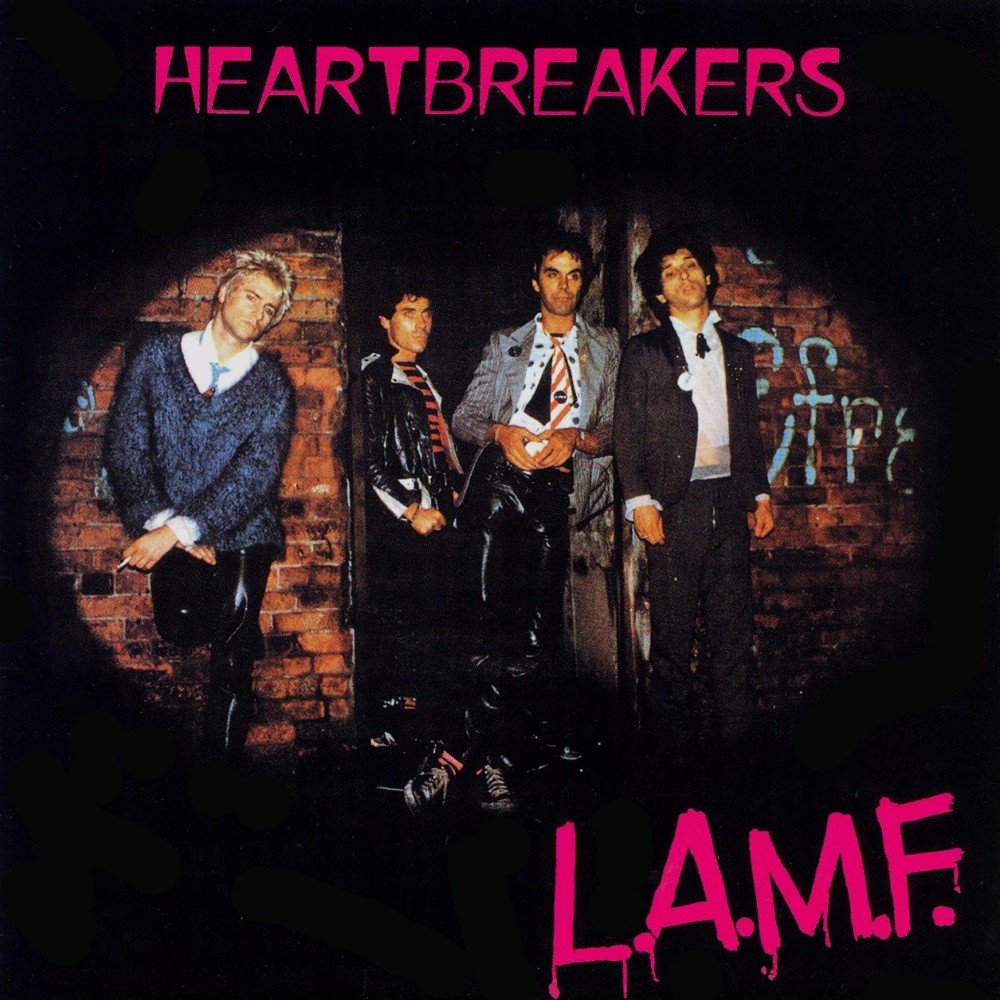In the mid-1980s, my dad’s friend and sometimes coworker Dicky flickered in and out of our lives, leaving town to avenge some loss, attend to a debt, risk a romantic overture, even fulfill obligations to the Navy, but eventually reappearing to gather himself. I was enthralled by his guiltless transience, but my dad, who worked 10-hour shifts to support his family, wasn’t impressed by whimsy. One evening, when Dicky showed up at our home hours after Happy Hour, he rolled up a shirt sleeve to reveal a fresh tattoo that read, “Born to Lose”, and Charles Farmer, my namesake, was incredulous. A line had been crossed.
“Now what the hell is that supposed to mean, Dicky? You done given up?”
“Charlie, it’s Johnny-Fucking-Thunders!”
Johnny Thunders. The name would hang with me for years but held no relevance until I began encountering it again and again in issues of Guitar World, in articles and interviews that revealed Thunders as one of the architects of punk and glam metal. Guitarists like Slash of Guns N’ Roses and Poison’s C.C. Deville were devotees that claimed his work with The New York Dolls and The Heartbreakers as crucial influences, so I had no choice but to save my grass-cutting money for a record store run.
The Heartbreakers’ L.A.M.F. was my first satellite from the Thunders orbit. The band boasted a can’t-miss pedigree that followed the dissolution of The New York Dolls when Thunders and drummer Jerry Nolan formed The Heartbreakers alongside former Television bassist Richard Hell, who soon left to be replaced by Billy Rath and guitarist & singer Walter Lure. Without a recording contract, The Heartbreakers existed as an unconfirmed legend, their gigs the stuff of mystery and inquisition. They toured the U.K. as elder statesmen to The Sex Pistols, The Clash, and The Damned, and finally garnered enough hype to sign a contract with Track Records, who released L.A.M.F. (Like a Motherfucker) in 1977.
L.A.M.F.’s lead-off track, Thunders’ “Born to Lose”, begins with a lone guitar, distorted and dissonant, stumbling at a precipice as the band lunges forward, ragged, cocksure, each verse giving way to the proud, sneering chorus, “Baby, I was born to lose,” a down-on-you-luck declaration of both defiance and it-is-what-it-is acceptance. The song epitomizes Johnny’s legacy: Chuck Berry chic undercut by nihilistic predestination.
Of course Dicky found him totemic.
Punk bands, like their rockabilly and R&B predecessors, are often unjustly remembered as singles bands, their albums overshadowed by one or two anthologized cuts. L.A.M.F. is more than “Born to Lose”. The rest of the album is just as ramshackle, wounded, and brash with the band waving from a car crash and Thunders in full command of his talents. Kinks-style riffs power “I Wanna Be Loved” and “Baby Talk” while “Goin’ Steady” and “I Love You” exude something that might be called affection.
The classic “Chinese Rocks” (A Ramones original? A Heartbreakers/Ramones collaboration? No one seems to remember, and narrators are unreliable.) matter-of-factly chronicles copping dope with a straight-faced ambivalence made possible by The Velvet Underground’s “Heroin”. “Let’s Go”, written by Thunders and drummer Jerry Nolan is a ’60s garage a-go-go that predicts The Mummies and other purveyors of budget rock.
“Pirate Love” is the most dangerous of Johnny Thunders’ contributions. What starts as a fun, if not competent romp swings along for a couple of minutes until the listener is sucker-punched by a detonation of crescendoing, slashing guitars, and crashing symbols.

The Heartbreakers were sometimes billed as Johnny Thunders and The Heartbreakers, and though Johnny’s mystique remains undeniable, promoting the other members as a mere backing band diminishes their contributions, especially the outfit’s other singer and guitarist, Walter Lure, who’s best remembered for the driving “One Track Mind”. His most irresistible song, “Get off the Phone”, made power pop and pop punk possible for generations to come.
L.A.M.F. is a shoulda-been hit alongside punk staples by The Sex Pistols and The Clash, but the album’s muddy production derailed the band’s momentum. After poor sales and dashed expectations, the band disintegrated, never again hitting their creative stride. Jungle Records has since rereleased different mixes of the record, most recently 2021’s Found ’77 Masters edition. All of the reissues include two essential bonus tracks– Lure’s and Nolan’s obsessive “Can’t Keep My Eyes on You” and a cover of The Contours’ “Do You Love Me” that nearly (Or does? You decide.) outshines the source material. But don’t discriminate or hesitate. If you run across a copy, any copy, hand over your money and get your mind in the gutter.
